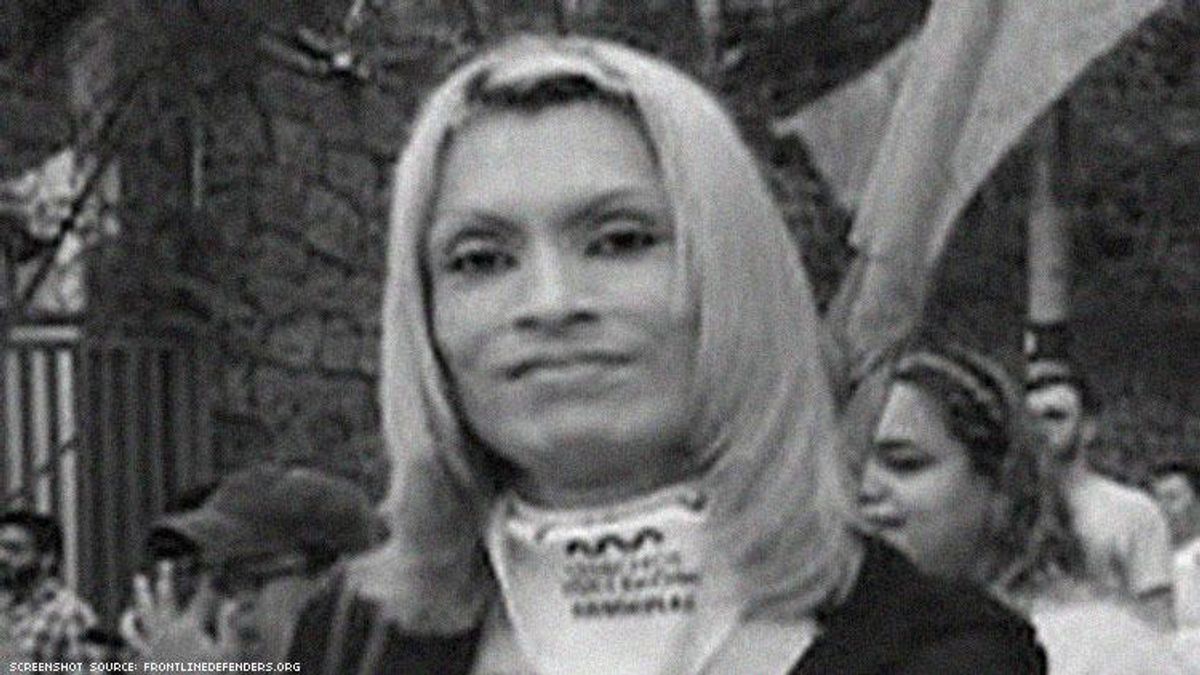Another transgender woman has been murdered in Honduras, the third this month.
Bessy Ferrera, 40, was shot to death Sunday night on a street in the city of Comayaguela, which is near the capital city, Tegucigalpa, human rights group Frontline Defenders reports. She was a transgender and sex rights activist, and a member of the LGBTQ rights organization Asociacion Arcoiris, according to Frontline Defenders.
Two men drove up to her in a car with darkened windows and opened fire, the group reports. She was struck by multiple bullets and died instantly. A woman who was with her was wounded and required hospitalization. The police have detained two men in connection with the attack, but their names have not been made public.
"Today we woke up with the painful news that our companion, friend and sister was murdered," Asociacion Arcoiris wrote on its Facebook page. "No doubt this news has taken us by surprise, leaving us with a lump in the throat and a feeling of impotence to see how we are being killed cruelly and the authorities of this country do nothing."
Even though arrests have been made in Ferrera's death, there is widespread police indifference to violence against LGBTQ people in the country, especially violence against trans people, attorney Astrid Ramos told NBC News. And sometimes police are the perpetrators; Ferrera was beaten nearly to death by police 10 years ago, but they have yet to be convicted, Ramos said.
Ferrera was the sister of Rihanna Ferrera, also a trans woman, who ran unsuccessfully for a seat in the Honduran Congress in 2017.
Her death came two days after that of TV personality Santiago "Santi" Carbajal. Carbajal, host of the La Galaxia de Santi program, which dealt with LGBTQ life, was fatally shot last Friday by a group of strangers in the city of Puerto Cortes.
Two days before Carvajal was killed, Antonia Lainez, a 38-year-old stylist, was shot to death in El Negrito, NBC News reports.
"This week was particularly tragic," Paul Jansen, program director at OutRight Action International, told the network. "Although violence against trans people in Central America is continuous, we haven't seen this level of violence in the last year."
Jansen said he doesn't think the three deaths are linked, but they are indicative of a culture of violence in the nation. There are many criminal gangs in Honduras, and while straight and cisgender people are sometimes victims of violence, rampant homophobia and transphobia heighten the risk of violence against LGBTQ people and particularly trans people, human rights groups said.
"It's the ideal cocktail for people to do what they please," Jansen told NBC. "Trans people in Honduras are viewed as the lowest of the low; they're seen as horrible people, and when they are visible and vocal, people take it as an invitation to kill them, which is unacceptable and unjustifiable."

















































































Viral post saying Republicans 'have two daddies now' has MAGA hot and bothered